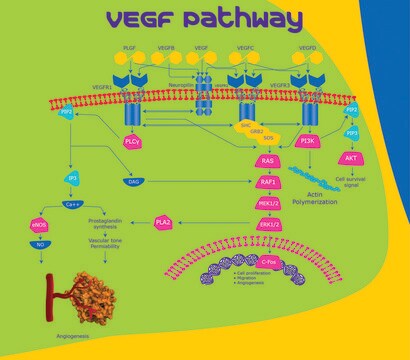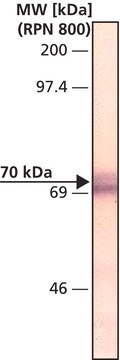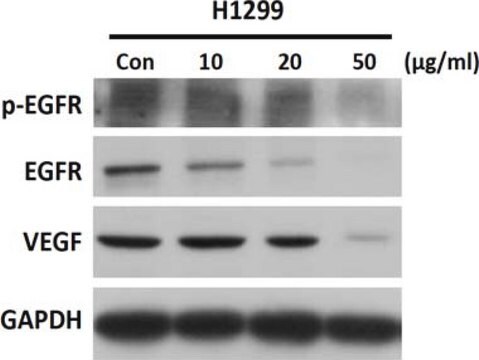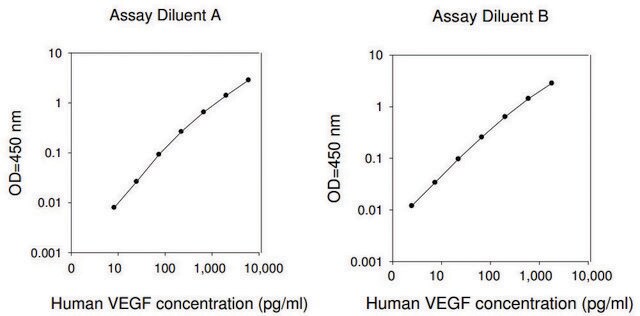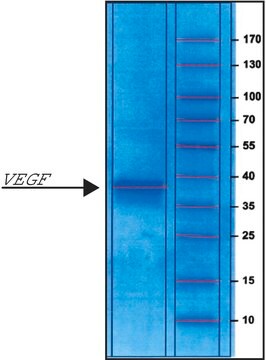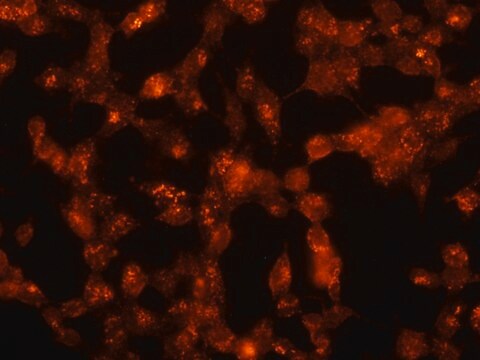V1385
VEGF Receptor-1 (Flt-1)/Fc Chimera human
>90% (SDS-PAGE), recombinant, expressed in baculovirus infected Sf21 cells, lyophilized powder
Synonym(s):
Vascular Endothelial Growth Factor Receptor‑1
About This Item
Recommended Products
biological source
human
Quality Level
recombinant
expressed in baculovirus infected Sf21 cells
Assay
>90% (SDS-PAGE)
form
lyophilized powder
potency
≤35 ng/mL ED50
mol wt
predicted mol wt ~100 kDa
packaging
pkg of 50 μg
storage condition
avoid repeated freeze/thaw cycles
impurities
endotoxin, tested
UniProt accession no.
storage temp.
−20°C
Gene Information
human ... FLT1(2321)
Application
Biochem/physiol Actions
Physical form
Analysis Note
Storage Class Code
13 - Non Combustible Solids
WGK
WGK 3
Flash Point(F)
Not applicable
Flash Point(C)
Not applicable
Personal Protective Equipment
Certificates of Analysis (COA)
Search for Certificates of Analysis (COA) by entering the products Lot/Batch Number. Lot and Batch Numbers can be found on a product’s label following the words ‘Lot’ or ‘Batch’.
Already Own This Product?
Find documentation for the products that you have recently purchased in the Document Library.
Our team of scientists has experience in all areas of research including Life Science, Material Science, Chemical Synthesis, Chromatography, Analytical and many others.
Contact Technical Service